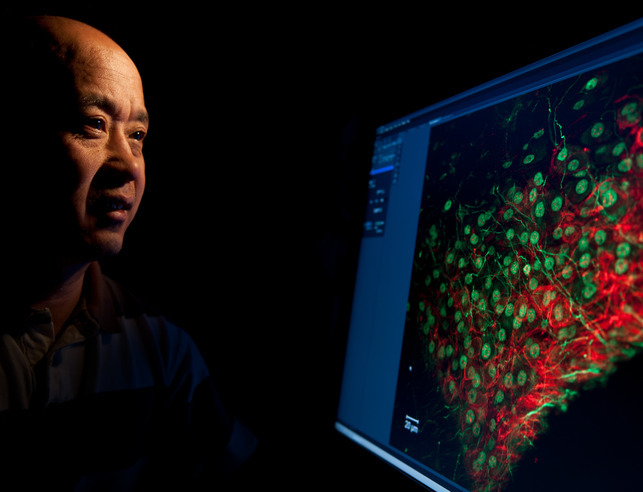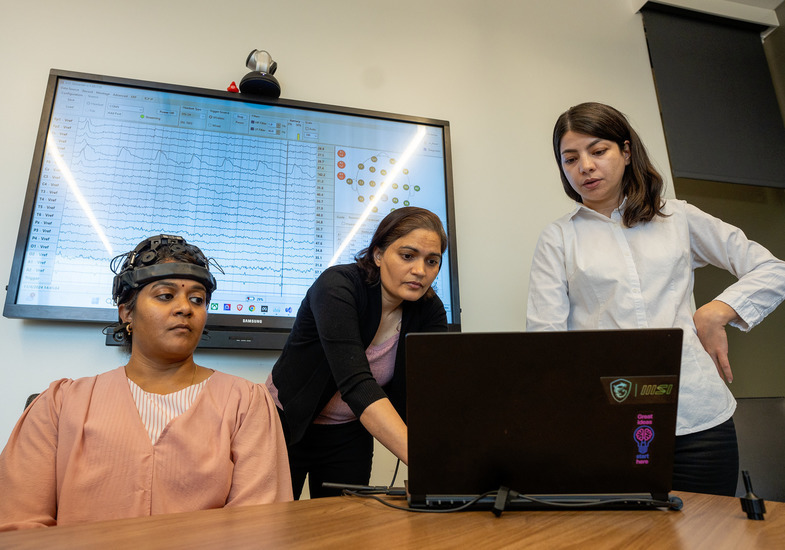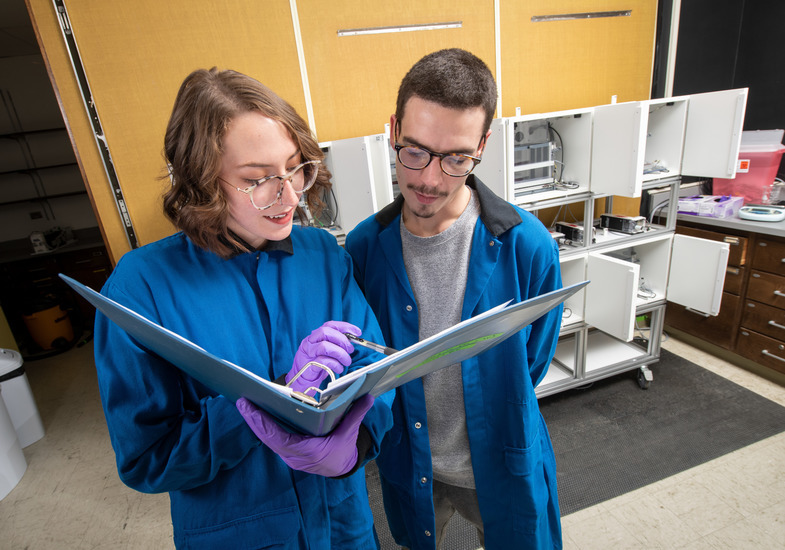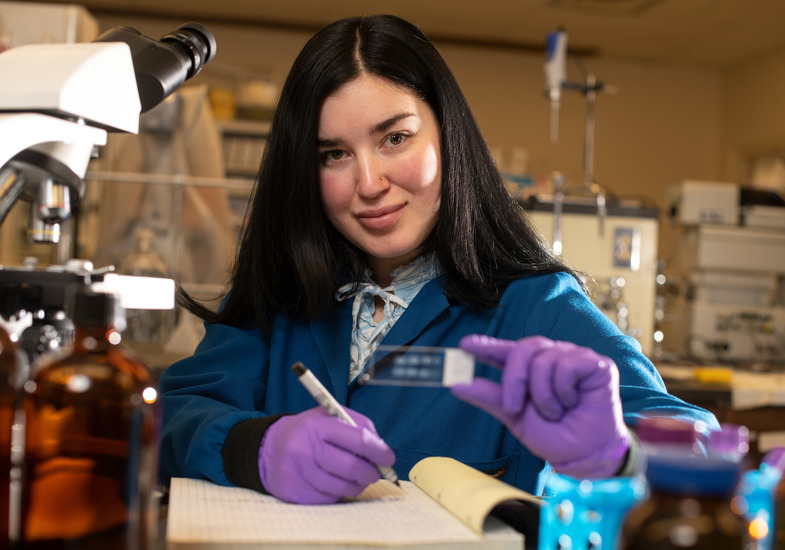Message From the Program
The doctoral neuroscience graduate program provides the opportunity to work with outstanding faculty members. The training program has the goal of enabling students to develop the research and communication skills, teaching experience and dependence needed for future successes in their chosen career path. Training is personalized as much as possible to enable students to develop skills in areas that fit with their future plans. Research training is largely hands on. Students have access to a state-of-the art microscopy facility. There are opportunities for students to develop leadership skills. Past students have gone onto post-doctoral training programs, and also obtained faculty positions. We welcome inquiries from motivated and independent thinkers from diverse backgrounds who desire a career in the neurosciences.
Cards Carousel Slider
Program Admission
Ready to pursue a Ph.D. in neuroscience? While most students begin in the fall, admissions are open year-round. We strongly encourage prospective students to explore faculty research interests and connect with faculty members whose work aligns with their academic goals before applying. Engaging with potential mentors can provide valuable insights into research opportunities and program expectations. Learn more and apply today!
ADMISSION INFORMATIONFaculty
The University of Wyoming’s neuroscience faculty are leading innovative research across a range of disciplines, from neurodegenerative diseases to the biological basis of behavior. Using advanced technologies like virtual reality and electrophysiology, they’re pushing the frontiers of discovery while mentoring the next generation of scientists.
Our Students
Our neuroscience students are at the heart of groundbreaking research, working alongside faculty to tackle complex challenges in the field. With a passion for discovery, they actively contribute to advancing knowledge in areas like neurodegenerative diseases, cognitive processes and brain function. Through hands-on research, immersive experiences and collaboration with expert faculty, our students are shaping the future of neuroscience.
UW Forms
Forms for graduate studies (committee assignment, change of major, etc.) and information on dissertations can be found under Graduate Student Forms and Guidelines on the Office of the Registrar website.
Curriculum & Coursework
The neuroscience program is research-oriented, with students expected to take a minimum of 2-3 credit hours of research per semester. Coursework beyond the foundational courses is tailored to fit each student's educational and research needs. Additionally, students attend a weekly neurophysiology seminar series, where invited speakers present their research and meet with graduate students.
About Laramie
Nestled at 7,200 feet between mountain ranges, this former 1860s railroad town has grown into a thriving community of nearly 32,000 residents. Laramie’s historic downtown comes to life with vibrant murals by local artists, unique shops, diverse restaurants and renowned museums, all while the distant rumble of trains echoes its Western heritage.
Degree Information
Explore the University of Wyoming's Neuroscience Ph.D. program to see if it's the right fit for you!
Undergraduate Neuroscience Minor & Research
The brain, a complex network of about 100 billion interconnected neurons, is responsible for emotions, learning, sensation, sleep and behavior. Neuroscience explores how these neurons' connections and electrical activity shape our consciousness and actions, as well as what goes wrong in disorders like dementia, autism and Parkinson's disease. For example, Alzheimer's affects 35% of people in their 80s, autism impacts 6 out of 1,000 children, and Parkinson's can manifest before age 40. As our understanding of the brain grows, so do potential treatments. The neuroscience minor introduces students to the field through courses on brain structure, neuronal signaling and the neurological basis of sensation, learning, movement, emotion, and behavior. Neuroscience faculty welcome undergraduates interested in obtaining research experience. If you are interested in undergraduate neuroscience research experience please contact the individual faculty member whose research you are interested in, or the director at kpratt4@uwyo.edu. The university also offers an undergraduate neuroscience minor! Enrollment in the neuroscience minor is not needed to obtain neuroscience research experience.
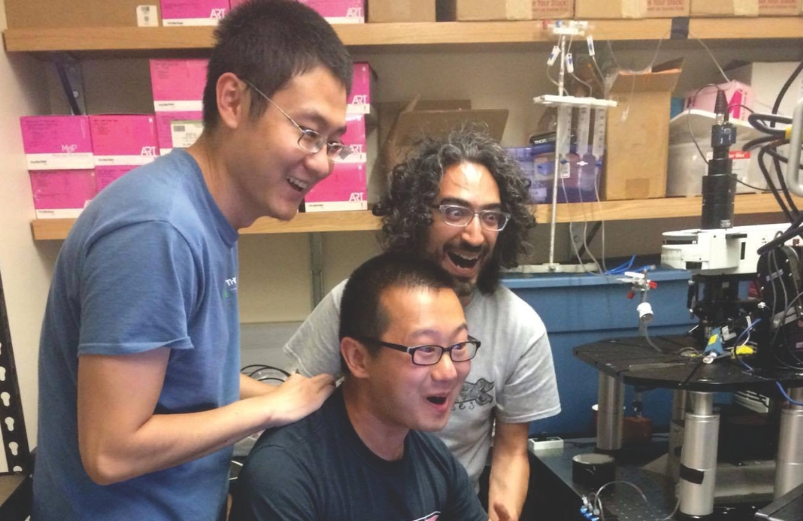
Donate to the Neuroscience Program
Neuroscience faculty are engaged in research that is relevant to diseases involving pain, epilepsy, spinal cord injury, neurodegeneration, addiction, neural development and communication disorders. We recognize that there are numerous national non-profit organizations that support research in these areas. However, if you are interested in supporting neuroscience research or graduate education at the University of Wyoming please contact the director, Dr. Kara Pratt at kpratt4@uwyo.edu.

